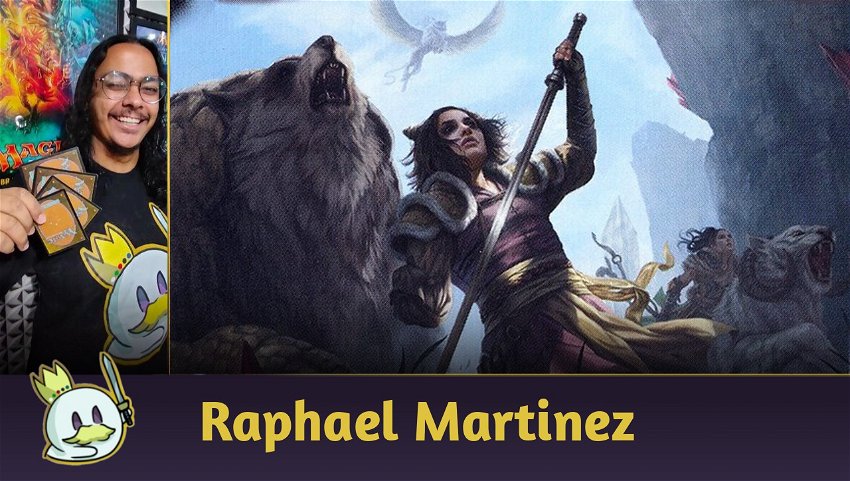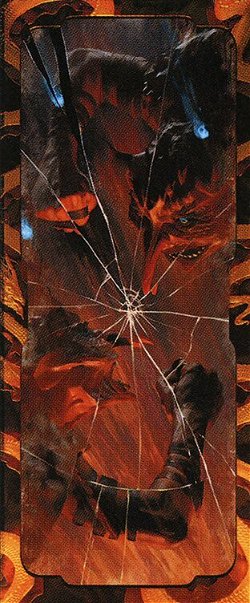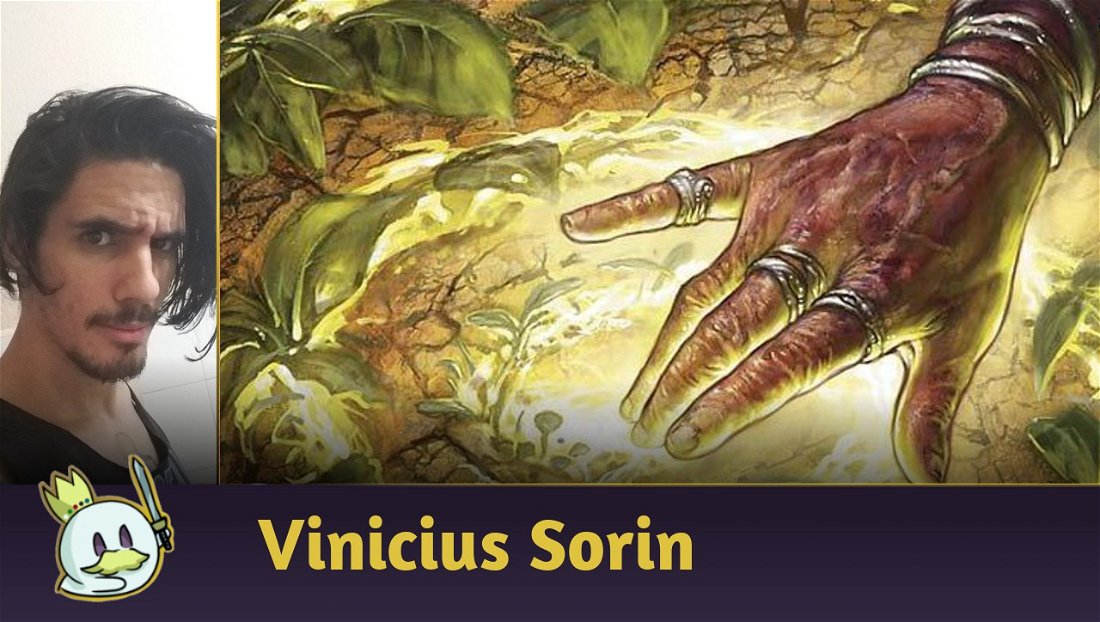About the Deck
Naya Winota is an aggro deck that has, in its strategy, the "Instant Win" plan when casting Winota, Joiner of Forces and attacking with its non-human creatures that are in play.
The main card is Winota, which gives the deck its name:

For the strategy to work, the deck has 15 Creatures that are non-human + 8 cards that generate non-human tokens, making it much easier to successfully resolve Winota, Joiner of Forces. One of the main cards we want to bring with her ability is Tovolar's Huntmaster:
Ad

The big advantage of bringing Tovolar's Huntmaster with Winota's ability is that it generates 2 Wolf tokens, which increases the number of non-humans in play. The main addition of Kamigawa: Neon Dynasty was Fable of the Mirror-Breaker.

This card serves the very purpose of the deck — being a non-human that creates treasures, as well as ramping up to be able to cast the most expensive cards, such as Tovolar's Huntmaster.
Mulligan and Stances
The deck basically has two clear lines of play.
One of them is to speed up the start of the game with your dork creatures, and then end the game with Winota with two or three activations.
The other plan is to be aggressive with your high-impact cards on the board, managing to place an Esika's Chariot or a Tovolar's Huntmaster from turn 3 or 4, making your opponent always have to respond to your threats.
To decide Keep or Mulligan you must keep your game plan in mind against each opponent, evaluating the best strategy against them (more on this later).
A standard keep is 2-4 lands and low-cost creatures, remembering to check your manabase. Always try to take the least amount of damage from your shocklands.
Sideboard vs Main Matchups
In this part, we will analyze the posture you should have with the deck in some of the main matchups of the format.
vs. Izzet Phoenix
Against Izzet Phoenix, the best way to win is to try to close the game with Winota, Joiner of Forces . For that, you must use the dork creatures as bait for the opponent's removals because the fundamental cards of the matchup are Fable of the Mirror-Breaker and Esika's Chariot, which offer unfavorable exchanges to the opponent, especially in game 1.
The card to watch out for in the match is Thing in the Ice, as it is a "pseudo-sweeper". To avoid it, it's interesting to use Brutal Cathar as good as possible to reset the Thing's counters, not casting it when the opponent appears to have an instant-speed removal.
Side in:

For the sideboard plan, we need Rending Volley and Skyclave Apparition against Thing in the Ice.
Archon of Emeria is to contain our opponent's game plan, which usually consists of playing several spells in the same turn.
Side out:

We must take some elves out because in this post-side match we must value the card advantage over speed, since our opponent comes with a very reactive sideboard.
Eldritch Evolution also comes out whenever you take out the Elves, and the other cards we remove to maintain the mana curve.
vs. Azorius Control
This is a match where game postures should change a lot between pre- and post-sideboard games.
In Game 1 you should try as fast as possible to close the game with Winota, Joiner of Forces, remembering to deal with the opponent's possible counterspells, playing a spell as a bait and then the important spell — always watch the amount of mana they have open.
Ad
We should always wait as long as possible to play Esika's Chariot so that it enters after the opponent plays a Supreme Verdict.
Side in:

The post-side plan is much more focused on being an Aggro deck, leaving Winota's plan only for when there are gaps.
Here we should focus on making some creatures and dealing damage bit by bit. You don't have to dump your whole hand to win, always play around Supreme Verdict.
To improve our plan, we've added Arlinn, the Pack's Hope to make it easier for creatures with flash to hit the board, or create Wolves to apply pressure.
Side out:

Our game plan changes from speed to value. Therefore, we must give up elves to place cards that have more impact when come into play. Brutal Cathar is removed to keep the number of humans and non-humans balanced post-side.
vs. Lotus Field
This is a very favorable match, being of fundamental importance to cast Winota in the 3/4 turn to finish the game quickly, so always try to favor this strategy, even if it is necessary to carry out aggressive mulligans for this.
Side in:

We must insert cards that interfere with the Lotus game plan, but without disturbing our aggressive plan, it is important to cast Archon of Emeria as soon as possible, in addition to trying to play Elite Spellbinder preferably on turn 2 (always trying to open with elves on turn 1).
Side out:

As our opponent doesn't run creatures, we should remove Brutal Cathar and favor our speed plan, thus removing the cards that are most important in value games.
vs. Naya Winota
In the Mirror in Game 1, it ends up being a match where whoever makes Winota the fastest wins. Therefore, use Brutal Cathar to reduce your opponent's creatures.
Side in:

Post-side use a more midrange plan with the deck, always removing the opponent's creatures when possible, since we have 10 removals.
Remember to always leave one mana open to threaten a Rending Volley on an opposing Winota, Joiner of Forces.
Side out:

We should remove Voice of Resurgence as the opponent's removals are mostly creatures as well, and the other cards are removed to keep the deck's cost low.
vs. Mono-Red Aggro
This is a tough game, as the opponent manages to remove our creatures while putting pressure on us to end the game quickly.
The idea of game 1 is to use low-cost creatures as a resource so that the opponent who doesn't have answers to the cards that really win the game, like Esika's Chariot and Tovolar's Huntmaster.
Ad
Side in:

Our post-side plan is to promote an exchange of resources, preventing the opponent's aggression.
For this, we use Skyclave Apparition against cards that generate a lot of value for the opponent, such as Chandra, Dressed to Kill.
Side Out:

We must remove the dorks, as they are easily dealt with while the opponent continues their aggressive plan. Taking this into account, we should prioritize creatures that take immediate effect upon entering the battlefield.
Finishing
Thanks for reading and good games!
Any questions or suggestions, I'm available in the comments below!










— Comentarios0
Se el primero en comentar